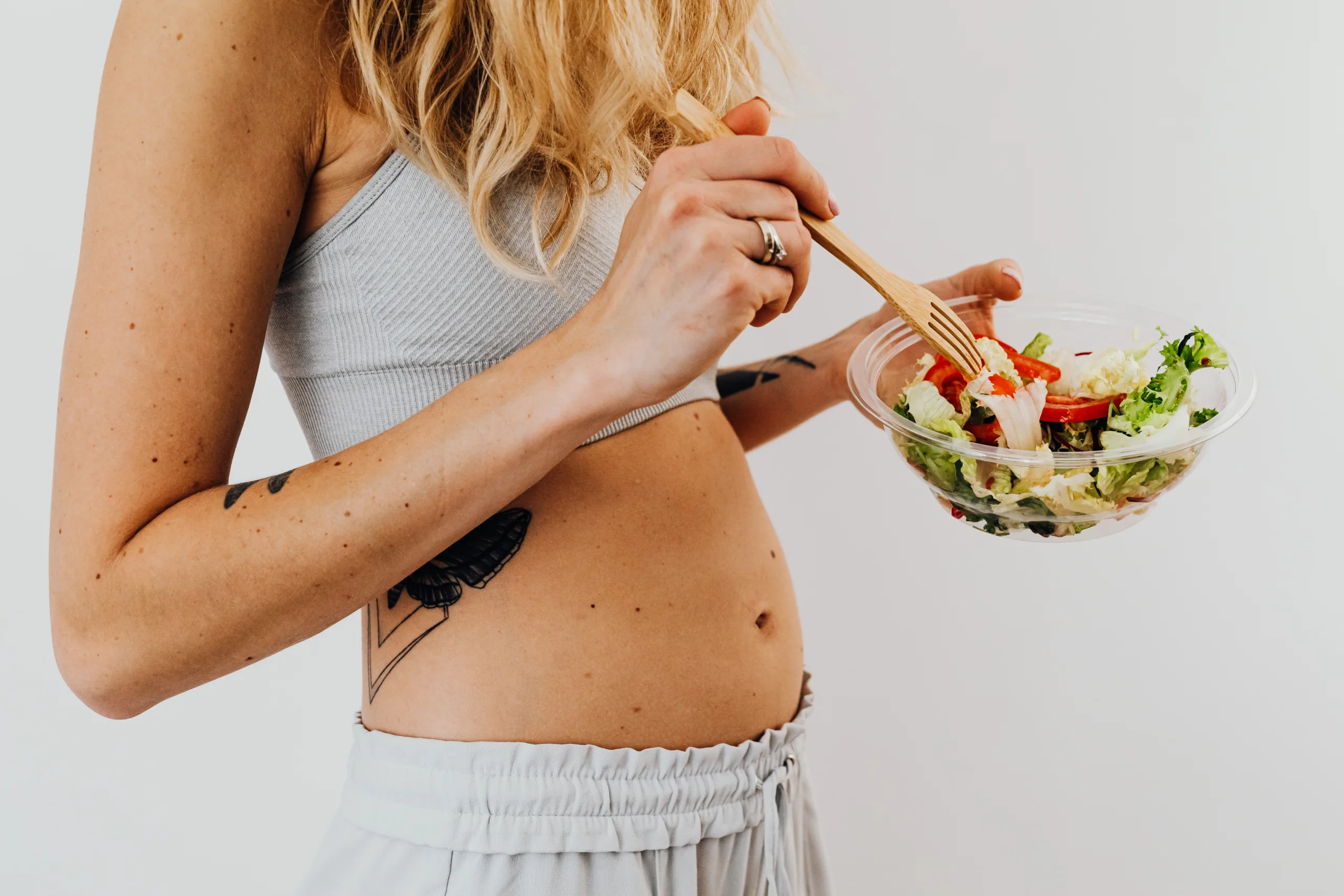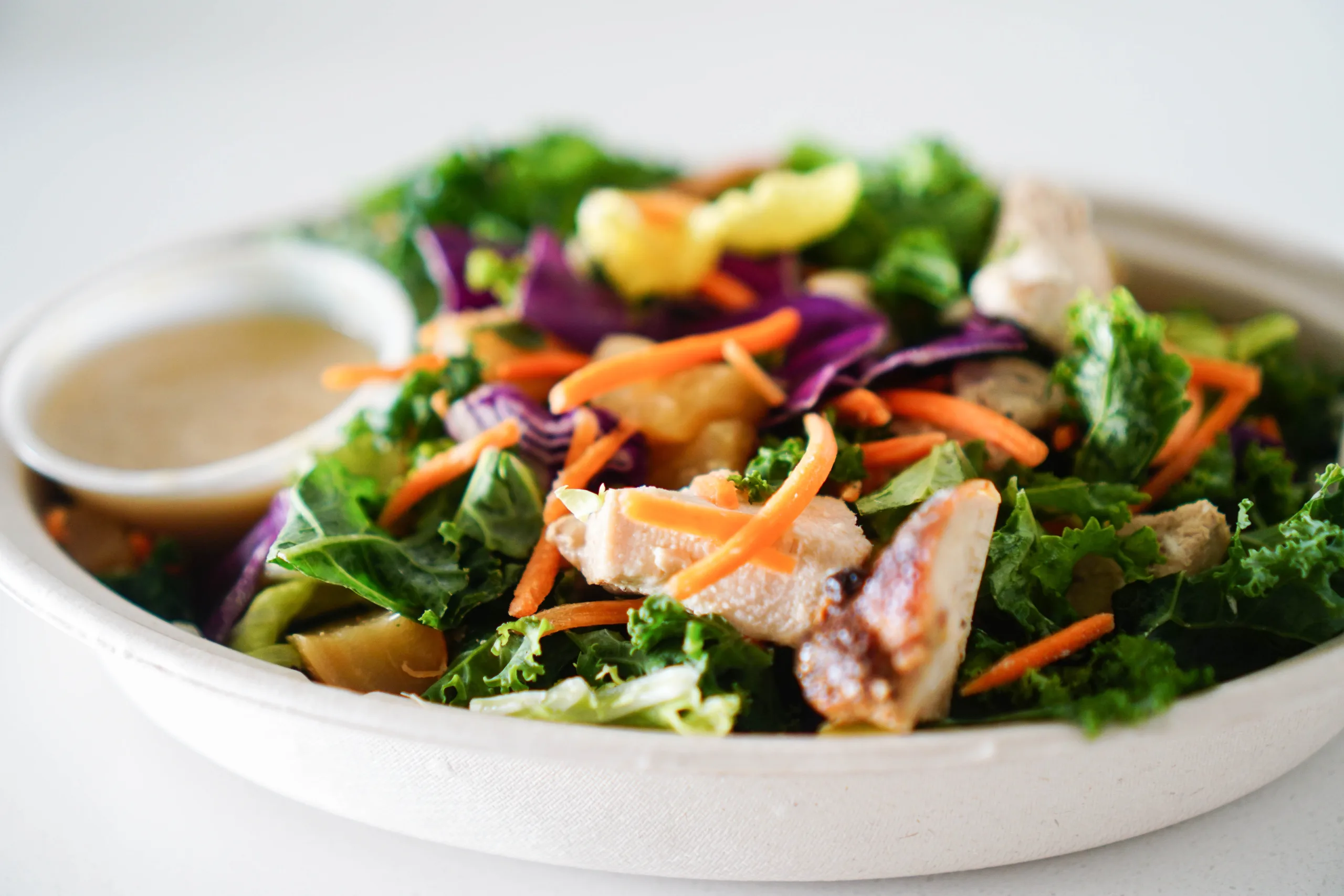Have you ever wondered how long unopened salad dressing can last? Have you ever had a bottle of salad dressing sitting in your refrigerator, only to forget about it and wonder if it’s still safe to eat? If so, this article is for you! We’ll discuss how long unopened salad dressing can last and answer all of your questions about shelf life and storage. By the end of this article, you’ll have all the knowledge you need to store, use, and discard salad dressing safely.
Unopened salad dressing can last up to two years when stored at room temperature, according to the United States Department of Agriculture.
Shelf Life of Unopened Salad Dressing
The shelf life of unopened salad dressing varies depending on the type of dressing and the manufacturer. Generally, most unopened bottled dressings will last for up to one year when stored at room temperature. If the dressing is stored in a cool, dark place, it can last even longer. To extend the shelf life, dressings should be kept away from direct sunlight and stored in a cool and dry place.
When it comes to homemade dressings, they typically only last a couple of days when stored in the refrigerator. To ensure food safety, homemade dressings should be kept refrigerated and used within three to four days after they are made.
It’s important to pay attention to expiration dates printed on store-bought dressings. If an opened bottle of dressing has been left out for more than two hours at room temperature, any remaining portion should be thrown away immediately. The same applies for homemade salad dressing that has been left out for more than two hours or has been sitting in the refrigerator for more than three days.
If there is no expiration date, it is best to discard any store-bought or homemade salad dressing that appears cloudy or has an off odor or flavor. In general, it is always better to err on the side of caution and throw away any questionable dressing to avoid potential foodborne illness or health risks.
It is also important to check the ingredient list on store-bought salad dressings before using them as some may contain dairy or other allergens that could cause adverse reactions in certain individuals. Always read labels carefully and be aware of possible food allergies before consuming any salad dressings.
Temperature Storage Guidelines for Unopened Salad Dressing
Salad dressing is a condiment often used to top salads or other dishes. It can be made from a variety of ingredients, including oil, vinegar, and herbs and spices. Like all food products, salad dressing should be stored properly in order to maintain its quality. Unopened salad dressing should typically be stored at room temperature in a cool, dry place.
When storing unopened salad dressing, it is important to check the expiration date on the package and follow any instructions provided by the manufacturer. Most unopened salad dressings have a shelf life of up to one year when stored properly. If unopened salad dressing has passed its expiration date, it should not be consumed and should be discarded instead.
It is also important to keep unopened salad dressing away from humidity and direct sunlight as this can degrade the quality of the product. If the product contains oil, it can become rancid if exposed to extreme temperatures or sunlight for too long. Additionally, unopened bottles of salad dressing should be kept upright so that the cap remains sealed and no contamination occurs.
When storing opened bottles of salad dressing, it is important to transfer them to an airtight container or resealable plastic bag as soon as possible after opening them. Opened bottles of salad dressing should also be refrigerated as soon as possible after opening them in order to prevent spoilage and bacterial growth. Opened bottles of salad dressing can typically last up to two weeks when stored properly in an airtight container or resealable plastic bag in the refrigerator.
To ensure that your unopened and opened bottles of salad dressing remain safe for consumption and retain their quality for as long as possible, it is important to follow these storage guidelines. By following these guidelines you can enjoy your favorite bottle of salad dressing for many months or even years!
How to Read Expiration Dates on Unopened Salad Dressing
Salad dressings are a convenient accompaniment to many meals, but it’s important to ensure that the dressing you’re using is still safe for consumption. Checking the expiration date on an unopened bottle of salad dressing is quick and simple. The expiration date will be printed either on the cap or on the label of the bottle and is typically written in a format such as “MM/DD/YY” or “MM/DD/YYYY”. The first two digits refer to the month, followed by the day, and then either two or four digits for the year. For instance, if the expiration date is written as “02/15/2021”, then it would mean that this bottle of salad dressing has an expiration date of February 15th, 2021.
It’s important to keep in mind that while this is the expiration date of a salad dressing, it doesn’t necessarily mean that it will become unsafe to consume after this date has passed. In some cases, there may still be some time left before it should be discarded. To ensure safety and quality, always smell and taste your salad dressing before consuming it once you’ve passed its stated expiration date. If it smells sour or off in any way or tastes vinegar-y or metallic, then discard it immediately as these are signs that it has gone bad and could make you ill if consumed.
Effects of Exceeding Recommended Storage Time for Unopened Salad Dressing
Exceeding the recommended storage time for unopened salad dressing can have a range of effects on the product. The most common effect is a decrease in flavor and texture. The longer the salad dressing is stored past its expiration date, the more likely it is that it will lose flavor and become less palatable. This can be especially noticeable with dressings that contain dairy or eggs, which are particularly susceptible to spoilage over time. In addition, salad dressings that contain high levels of acidity may become less acidic after extended storage, resulting in a different taste.
Another potential effect of exceeding the recommended storage time for unopened salad dressing is an increased risk of food-borne illness. Bacteria such as salmonella and listeria can grow rapidly in perishable condiments such as salad dressings after their expiration date has passed. Consuming these contaminated products can lead to serious health consequences including vomiting, diarrhea, fever, and even death. It is important to note that there is no way to tell if a contaminated product has been consumed until symptoms occur.
Finally, exceeding the recommended storage time for unopened salad dressing can lead to changes in texture or appearance. The oil and vinegar may separate over time due to changes in pressure or temperature, resulting in an undesirable texture or appearance when opened. Additionally, some dressings may darken over time due to oxidation or other chemical reactions occurring inside the container during storage.
Overall, it is important to adhere closely to the recommended storage times for unopened salad dressings in order to ensure safety, quality and flavor. Storing them too long past their expiration date increases the risk of food-borne illness as well as reduction in flavor and texture quality.

How to Tell if Unopened Salad Dressing Has Gone Bad
Salad dressing is a great way to add flavor to your greens, but it’s important to make sure you’re using a product that is still safe to consume. It can be difficult to tell if an unopened salad dressing has gone bad, but there are a few ways you can check.
One of the easiest ways to tell if an unopened salad dressing has spoiled is by checking the expiration date on the bottle or jar. If it has passed its expiration date, then it’s likely that the salad dressing has gone bad and should not be consumed. It’s also important to check for any visible signs of spoilage like discoloration or mold on the lid of the container.
Another way to tell if an unopened salad dressing has gone bad is by smelling it. If the scent of the salad dressing is off or smells strange, then it’s likely that it has spoiled and should not be consumed. It’s also important to check for any signs of leakage, which could indicate that bacteria have gotten into the container and caused spoilage.
Finally, it’s important to check for any changes in texture or consistency when looking at unopened salad dressings. If there is a noticeable change in texture or consistency, then this could indicate spoilage and should not be consumed. It’s also important to make sure that the container hasn’t been tampered with before consuming.
By following these steps, you should be able to tell if your unopened salad dressing has gone bad before consuming it and avoid any potential health risks associated with eating spoiled foods.
Storing Unopened Salad Dressing
It is important to store unopened salad dressings properly in order to preserve their flavors and prevent them from going bad. Unopened salad dressings often come in a variety of packaging, including bottles, jars, and pouches. Depending on the type of salad dressing, the best way to store it will vary. Here are some best practices for storing unopened salad dressing:
Refrigerate After Opening
When possible, refrigerate unopened salad dressing after opening. This can help extend its shelf life and prevent spoilage. Additionally, some dressings may require refrigeration even before they are opened. Be sure to check the label for instructions on how to best store your particular dressing.
Keep Away From Heat
It is also important to keep unopened salad dressings away from sources of heat such as an oven or stovetop. Heat can cause the dressing to spoil faster and can alter its flavor. It is also a good idea to keep it away from direct sunlight.
Check Expiration Date
Be sure to check the expiration date on your unopened salad dressing before consuming it. Salad dressings that have passed their expiration date may not be safe to consume, so it is important to dispose of them properly.
Store in Original Containers
Whenever possible, store unopened salad dressings in their original containers. This will help maintain the quality of the product and ensure that it stays fresh longer. If you need to transfer the dressing into another container for storage purposes, make sure it is airtight and labeled correctly.
By following these tips for storing unopened salad dressings, you can help ensure that your salads remain flavorful and delicious!
Common Causes of Spoiled Unopened Salad Dressing
Salad dressings are an essential part of many meals, and as such, it is important to store them properly. Unfortunately, unopened salad dressings can still spoil if not kept in the right conditions. Common causes of spoiled salad dressing include improper storage, poor manufacturing practices and contamination.
Improper storage is one of the most common causes of spoiled unopened salad dressing. Salad dressing should be stored in a cool and dry place away from direct sunlight and sources of heat. It is also important to keep the bottle sealed tightly at all times in order to prevent cross-contamination with other foods or bacteria from the air.
Poor manufacturing practices can also lead to spoiled unopened salad dressing. If the bottles are not properly sealed or the expiration date has passed, then there is a greater chance that the product has gone bad. Additionally, if the dressing has not been made in a clean environment and handled properly during production, then it may have come into contact with bacteria or other contaminants that can cause it to spoil quickly.
Finally, contamination can also lead to spoiled unopened salad dressings. If the bottle has become contaminated with bacteria or other contaminants during handling or shipping, then it can cause the product to spoil quickly even if stored correctly. Additionally, if food products that contain raw eggs or dairy have been stored near the dressing then there is a greater chance that it could become contaminated and cause it to spoil prematurely.
For these reasons, it is important to take extra precautions when storing unopened salad dressings and check for signs of spoilage before using them in recipes. Taking these steps will ensure that your salads are always fresh and flavorful!

Conclusion
Unopened salad dressing can last for a long time if stored correctly. The shelf life of unopened salad dressings can vary greatly depending on the type of dressing and the ingredients used. Generally, unopened oil-based dressings will last up to one year in the pantry, while other types of dressings will last up to six months in the pantry. Refrigeration of unopened dressings can extend their shelf life significantly, up to two years for oil-based dressings and one year for other types. Refrigerate any opened bottles of salad dressing immediately and use within 2 months. Allowing any opened bottles of salad dressing to sit at room temperature can reduce their shelf life dramatically and make them unsafe to consume.
It is important to take the expiration date on the bottle into consideration when purchasing salad dressing and use it before that date passes. Paying attention to signs of spoilage, such as an off smell or an unusual appearance, is also important when deciding whether or not a bottle of salad dressing is still safe to consume. Following these guidelines should ensure that you have delicious, safe salads all year round!
